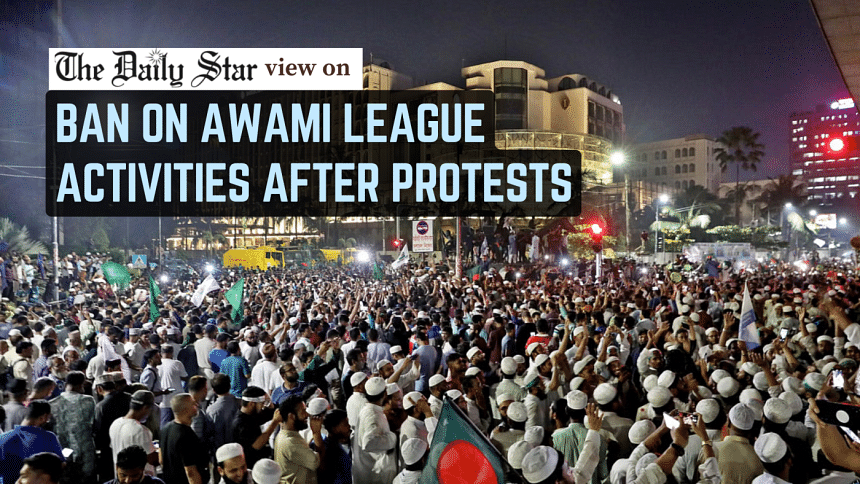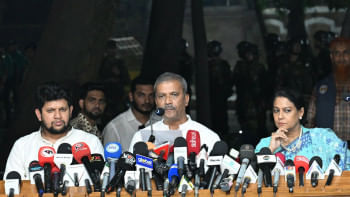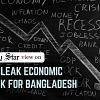Justice demands proper trials, not just bans

On late Saturday night, the interim government announced a ban on the activities of Awami League, including its online presence, under the Anti-Terrorism Act. The ban, we are told, will remain in place until the International Crimes Tribunal concludes the trial of the party and its leaders. This is a unique step. Following 15 years of repression and particularly its role during the July uprising, there is a widespread sense of public disgust towards the AL, which is clearly visible to all. Public outrage intensified when former President Abdul Hamid was recently permitted to leave the country for Thailand. This served as a trigger, prompting the government to impose the ban in a matter of days, despite having shown reluctance to do so in the previous 10 months. The key question now is: how will this decision impact our politics and future elections?
Looking at historical examples globally, the banning of political parties is relatively rare. Even rarer is a ban that successfully achieves its intended objectives—the banning of the Nazi Party, which played a central role in starting the Second World War, being a unique exception. In our own history, we have witnessed the banning of religion-based political parties after our independence. However, that ban was lifted under President Ziaur Rahman. Sheikh Hasina's AL government also banned Jamaat-e-Islami shortly before its fall from power. Even before that, in 2013, Jamaat was barred from contesting elections by a High Court ruling. That decision was repeatedly used by Hasina's AL government as a pretext to crack down on Jamaat's leaders and activists—as well as on other dissidents falsely associated with Jamaat. But did that prevent Jamaat's survival and later emergence as a powerful political force?
It is a matter of fact that Sheikh Hasina and numerous leaders and activists of the AL have committed grave human rights violations. What is unfortunate is that, despite the passing of 10 months, we have not seen the government make significant headway in appropriately prosecuting the alleged criminals within the AL, starting from the very top. And looking at historical examples, both globally and locally, whether a blanket ban serves the purpose of properly dispensing justice remains questionable.
It is more than likely that the ban may drive many AL members to questionable activities, as we have seen previously with associates of some banned political parties. So, instead of taking the easy way out by simply banning the party, the government should focus on meeting the primary demand post-uprising: justice for the many atrocities perpetrated by AL members, through transparent and proper trials. We must learn from global, Asian, South Asian, and our own history about the results of banning a political party.


 For all latest news, follow The Daily Star's Google News channel.
For all latest news, follow The Daily Star's Google News channel. 










Comments